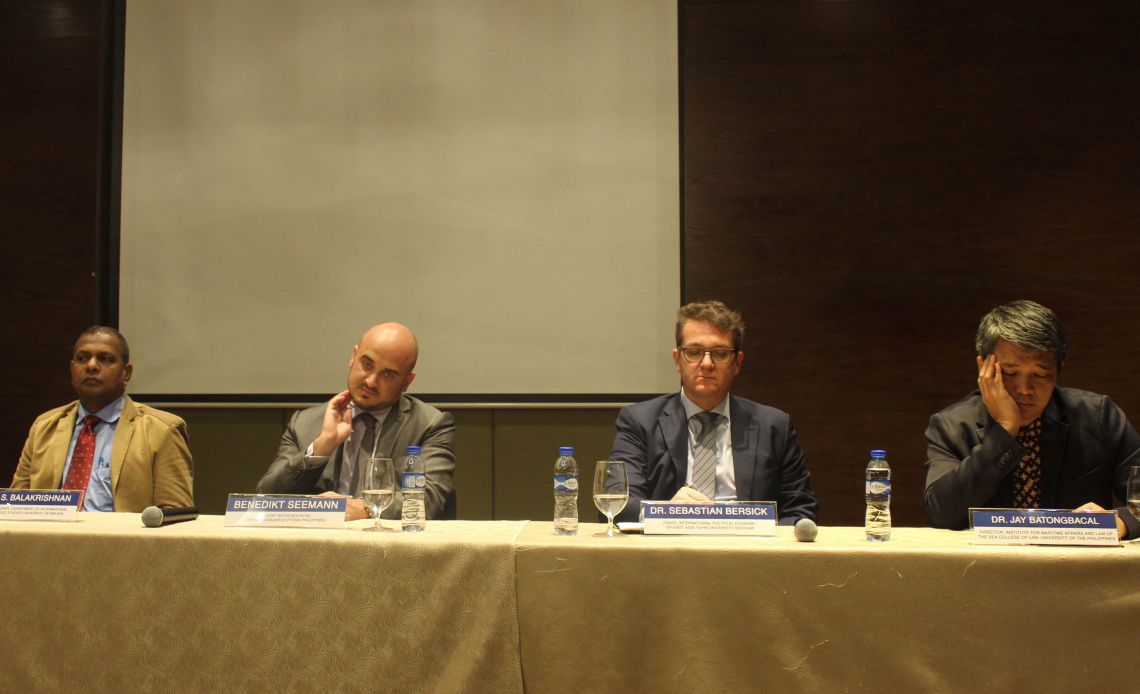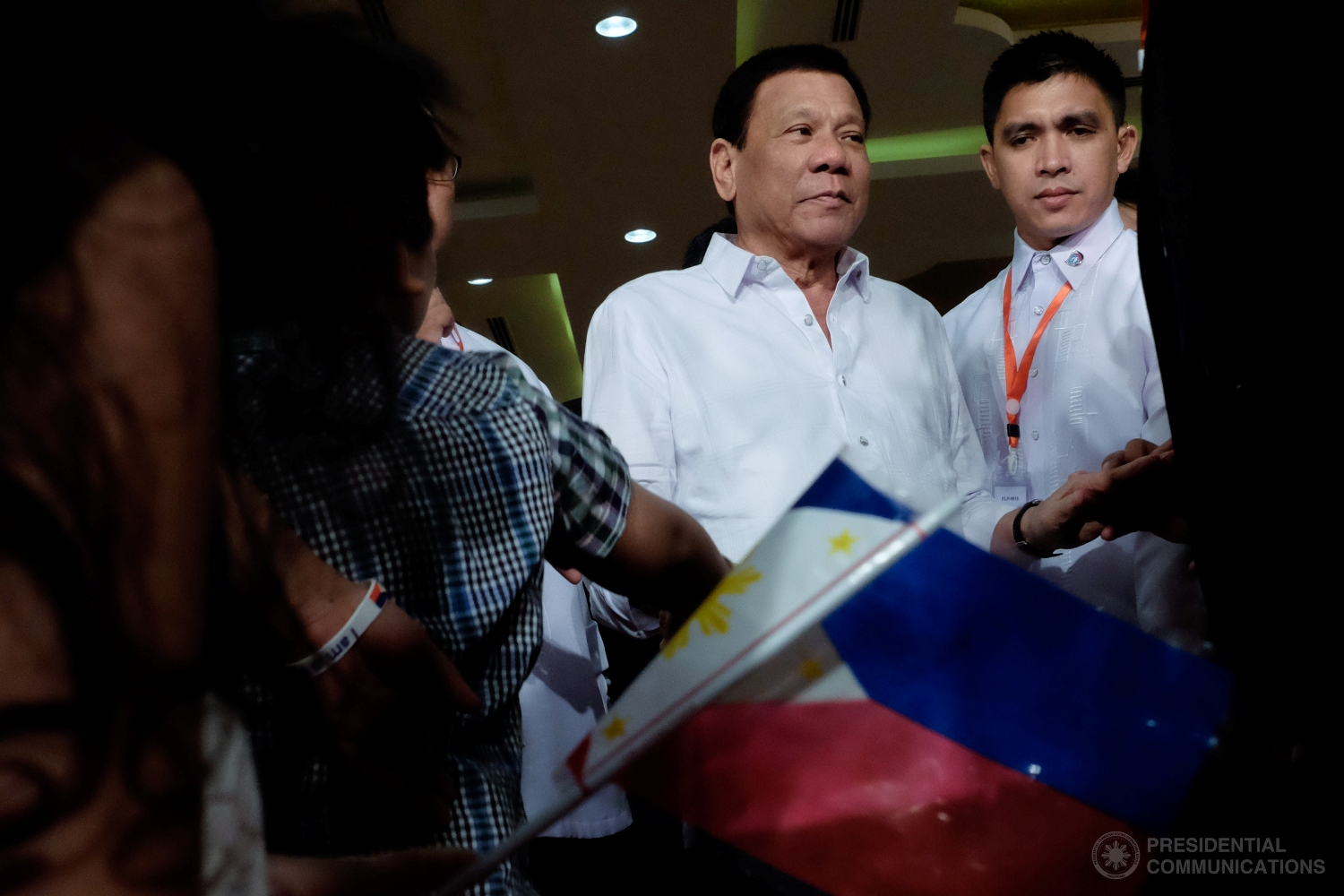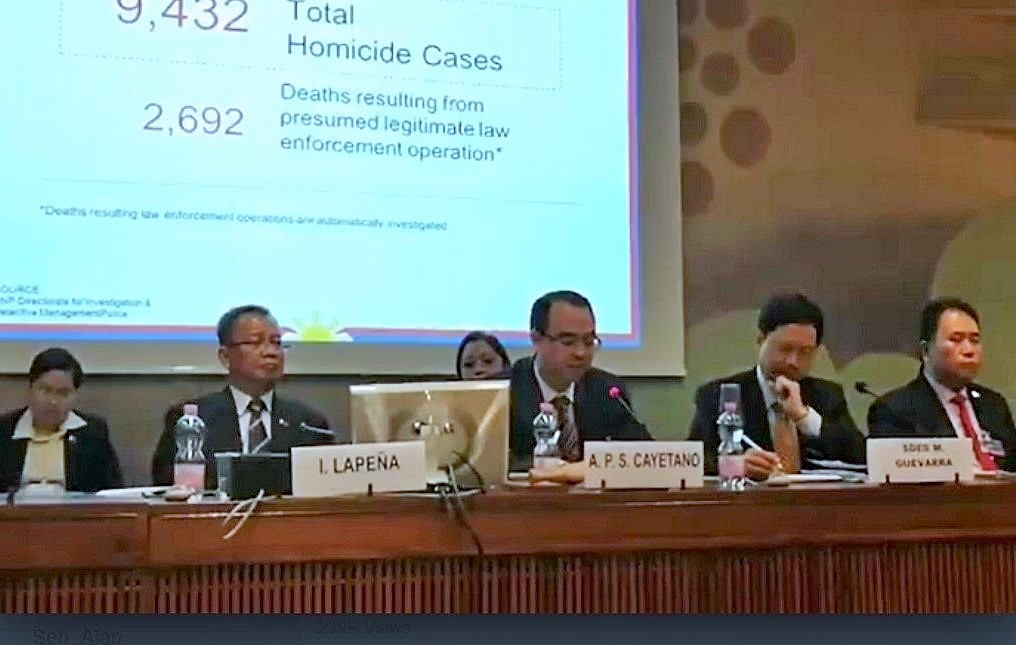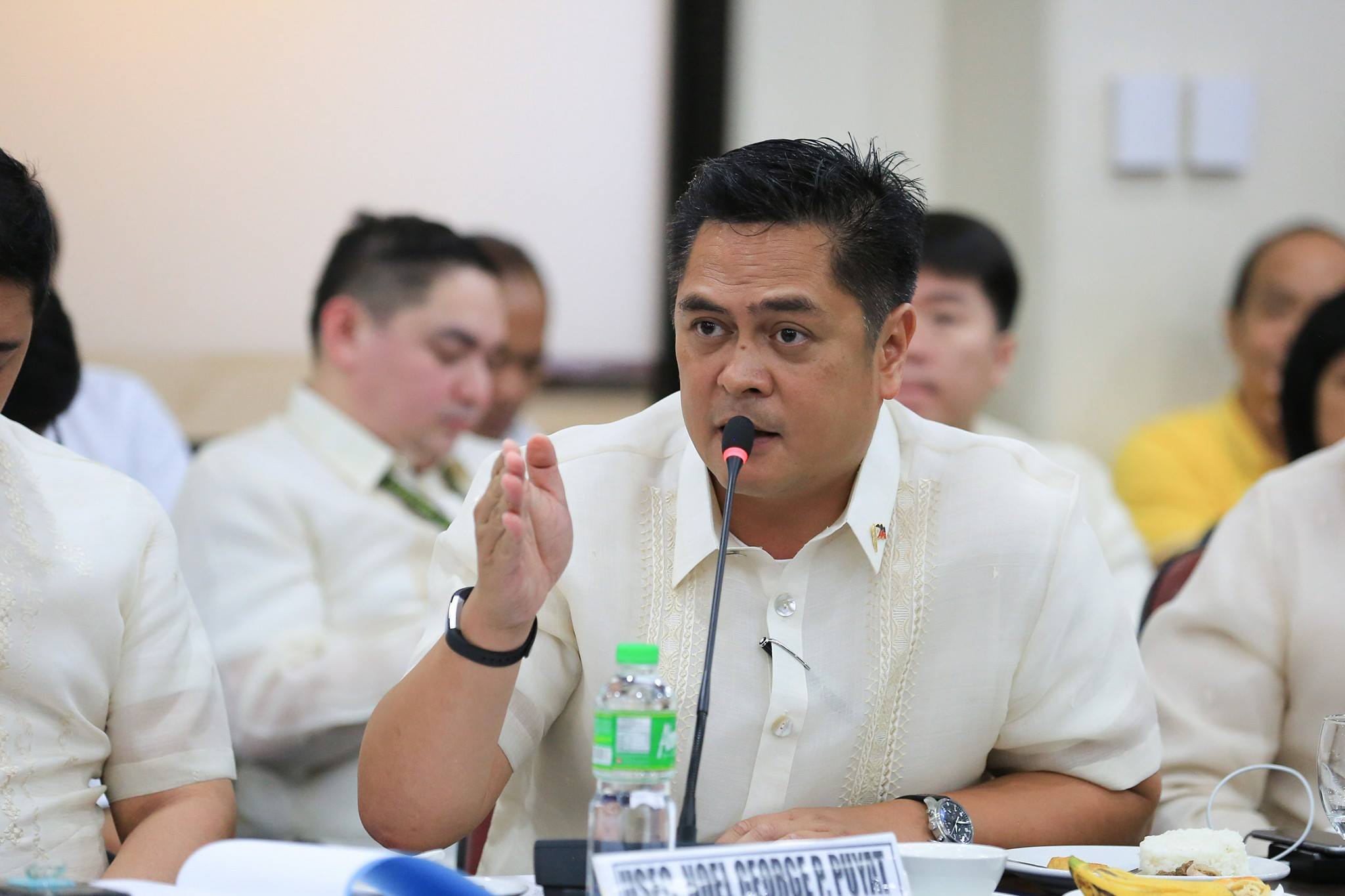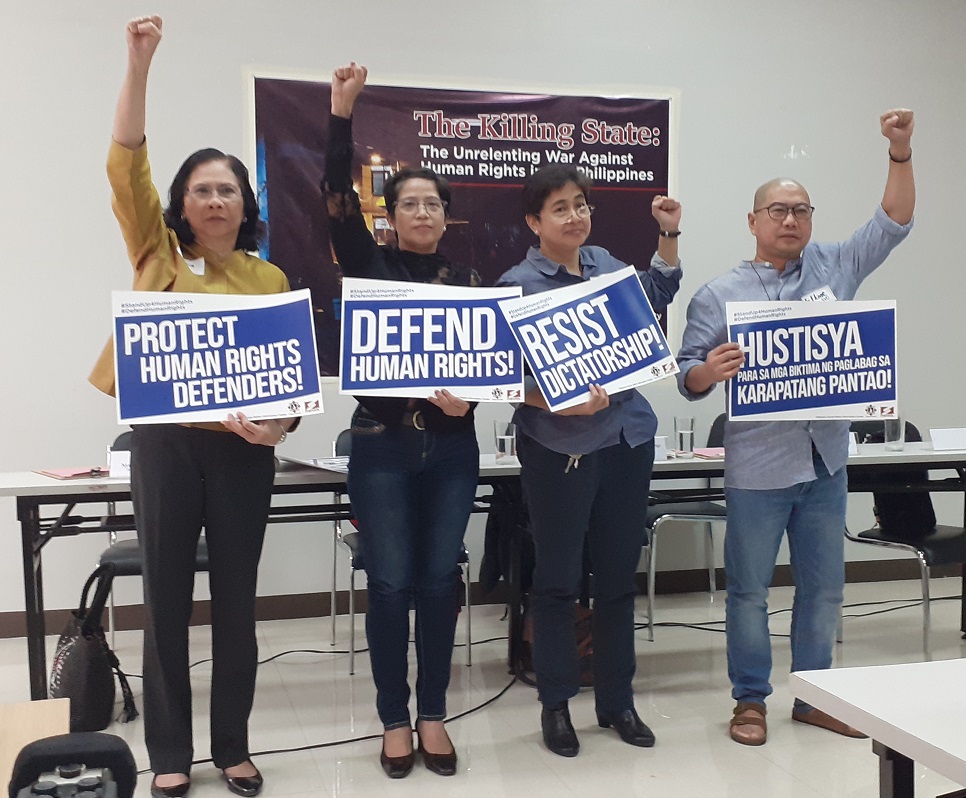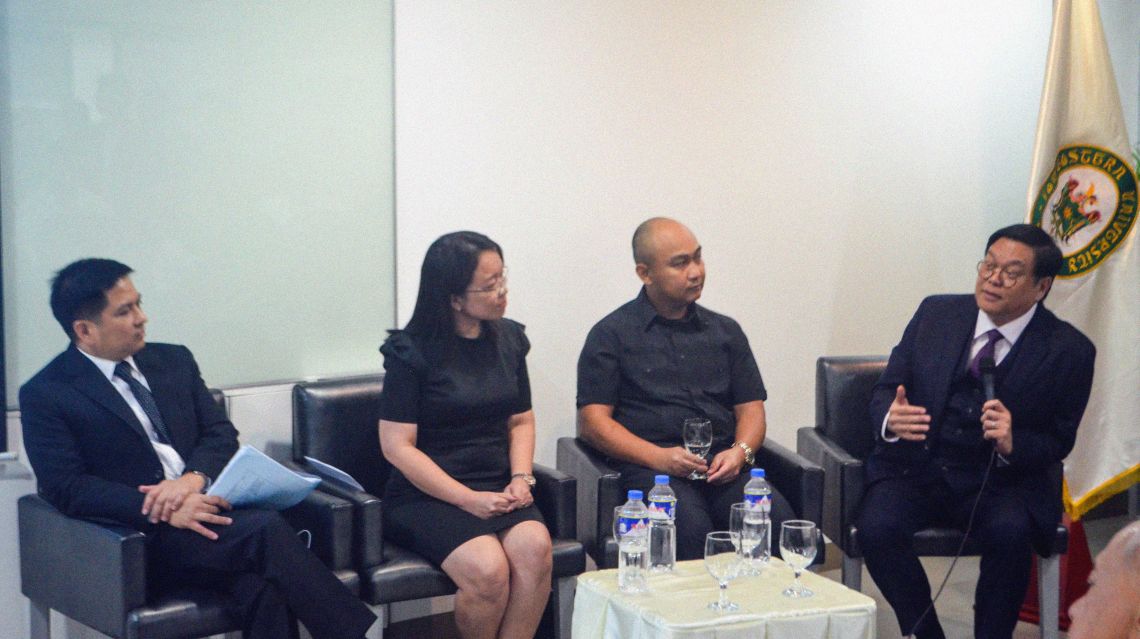
Lawyer Mel Sta. Maria, dean of the Far Eastern University Institute of Law, presents his paper on trade repercussions and human rights obligations of the Philippines before lawyers and academics on Sept. 26.
The Philippines risks losing trade incentives from the European Union unless it improves its human rights record particularly in its brutal war on illegal drugs, lawyer Mel Sta. Maria has warned.
Sta. Maria, dean of the Far Eastern University Institute of Law, in a lecture on Sept. 26 said the EU, the Philippines’ third largest export market, may decide to withdraw the grant of zero-tariff on local exports if the government fails to fulfill its human rights obligations.
“(T)he danger of zero-grant will always be there, especially in the Philippines where the government, as exhibited by its leader, appears to be irreverently vocal in its antagonism not only on the notion of human rights but also against the providers themselves,” he said.
Sta. Maria added that the country is becoming an area of international concern as a result of killings in the government’s drug campaign.
The country enjoys a privilege of paying less to no duties on some 6,200 products, including processed fruit, coconut oil, fish and footwear that are exported to the EU. The Philippine Statistics Authority reported that exports to EU-member countries reached $6.97 billion in 2016, making the bloc the third biggest market for local products, after Japan and the United States.
This duty-free access is made possible under the Generalized System of Preference Plus (GSP+), which requires compliance with international conventions on human rights, labor rights, environment and good governance in exchange for trade perks.
For exporters, a zero-tariff scheme reduces expenses and allows for increased exports, and consequently, more income.
In March 2017 the European Parliament passed a resolution urging the EU to persuade the Philippines to put an end to killings related to the war on drugs. Else, the GSP+ privilege will be removed.
President Rodrigo Duterte has slammed the EU for its criticisms of the killings and warned them against any interference.
Malacanang in May said it is willing to forego EU development aid worth 250 million euros to demonstrate its independence. Presidential Spokesperson Ernesto Abella, however, clarified that the Philippines will only reject aid if it meddles with the country’s internal affairs.
A removal of the GSP+ will impact the Philippine economy negatively, Sta. Maria said in his 23-page paper, “Human Rights, Politics, International Law and Trade Arrangement and Economic Prosperity: A Reading of the Philippine Situation.”
Aside from increased expenses for exporters, affected companies may lay off employees to cope with reduced income. A “period of economic hardship” may be experienced by these workers, characterized unpaid debts, foreclosed mortgages that could altogether force children of laid-off employees to stop schooling, Sta. Maria warned.
“In the meantime, the other ASEAN countries (Brunei, Indonesia, Malaysia, Thailand, Vietnam) which followed the Philippine’s lead in getting GSP+ status from EU will maintain and enjoy such status,” Sta. Maria added.
These countries’ agricultural products will continue to be free of tariff, allowing them to export more products than the country. This will give them a “great competitive edge” over the Philippines.
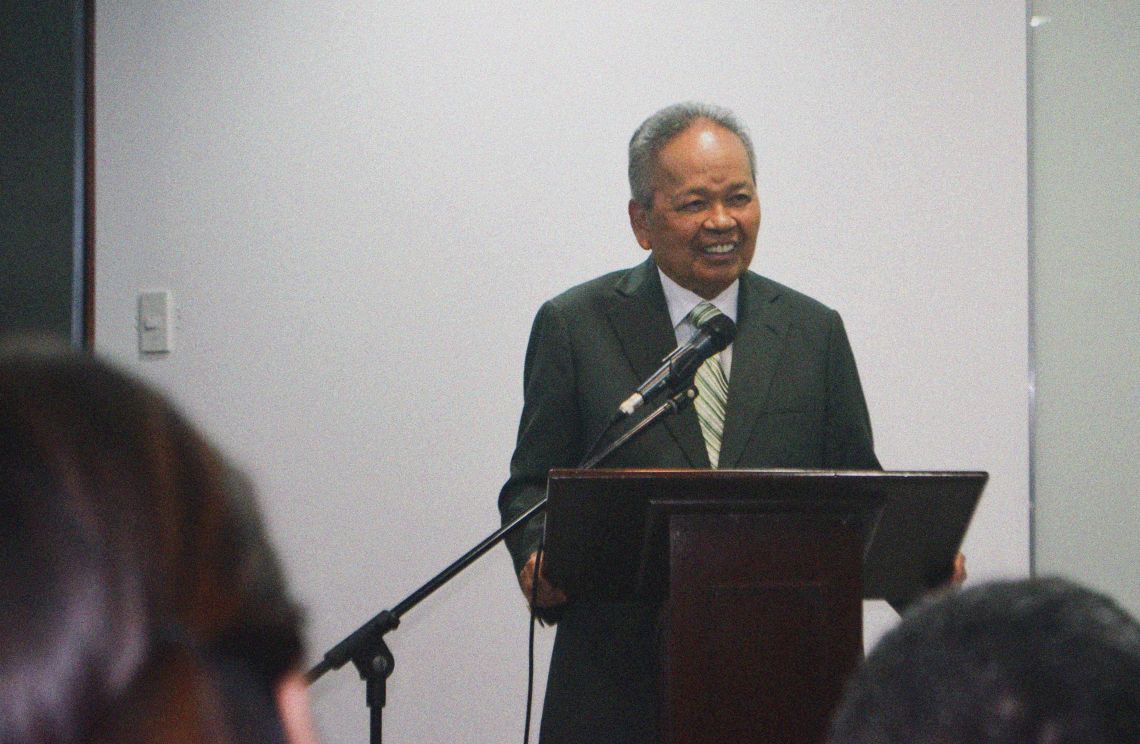
Former Chief Justice Artemio V. Panganiban commends Sta. Maria’s paper for outlining the “interdependency” of political and economic rights.
In his paper, delivered during the Chief Justice Panganiban Professorial Chairs on Liberty and Prosperity Public Lecture, Sta. Maria assessed how the Philippines is faring in terms of the 27 international conventions, a requirement of the EU to renew GSP privileges for the Philippines.
These are the International Covenant on Civil and Political Rights, the Convention on the Rights of the Child, and the Convention against Torture and other Cruel, Inhuman or Degrading Treatment or Punishment, to name a few.
Based on his findings, Sta. Maria said developed countries, including the EU, have “enough standing justification” to suspend or straightforwardly withdraw the GSP privileges enjoyed by the Philippines.
For instance, he said Duterte’s pronouncements to “slaughter people” can form basis of international accountability or liability.
“Misinterpreted to their extreme, the declarations may be taken as words of encouragement, especially for people in authority like the Philippine National Police (PNP) officers, to have the same motivation and objective. Put into action and ultimate fruition, it is EJK,” Sta. Maria said.
Extrajudicial killings, Sta. Maria said, are now specially used to highlight their gravity over and above the other types of murder. It is the “brutal extermination of ordinary people, especially the poor and the young, caused or executed usually by state agents,” he said.
Beyond casual threats of murder, Duterte’s sexual assault remarks, one in particular where he joked that he will cover for rape committed by military forces, is considered a crime against humanity when done during an armed conflict, Sta. Maria said.
He also cited the “despicable scene” of the suspected thieves who were paraded demeaningly in Tanauan, Batangas sometime in July, which may be considered a degrading form of punishment. Hanging from their necks were signboards that read “Ako’y Magnanakaw, Huwag tularan (I am a thief. Do not imitate).”
Beyond killings, Sta. Maria’s paper also dealt with social and cultural rights, including the right to work, housing, education, health, food, water and the right to an adequate standard of living.
He cited reports of the United Nations Committee on Economic, Social and Cultural Rights which found that 75 percent of the Philippine workforce, for the most part women, are working in the informal economy. These are the independent, self-employed small-scale producers and distributors of goods and services, and are not afforded legal protection and safeguards.
An estimated 1.5 million children aged 5 to 14 are engaged in child labor and that half of them are working in hazardous or dangerous conditions and are exposed to various forms of sexual and economic exploitation, the UNCESCR added.
“There is no question about it, the Philippines is becoming an area of international concern for violations of human rights and, more particularly, for mass killing,” Sta. Maria said.
A possible fallout: The Philippines may be considered internationally as a “failed state” both politically and economically, he added.
Commenting on Sta. Maria’s paper, former Chief Justice Artemio V. Panganiban highlighted the “interdependency” of political rights and economic rights.
“It’s an essential right to be freed of poverty and be prosperous. Because, what is it of us if we are out of jail when we have nothing in our stomach?” Panganiban said.
